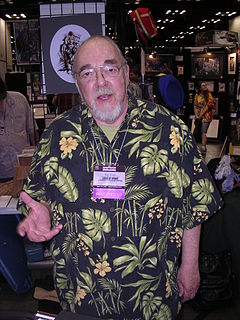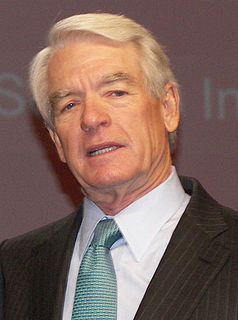A Quote by Joe R. Lansdale
I don't want people reading my books just because they're horror or mysteries. I want them to read them because they're Joe Lansdale books.
Related Quotes
Electronic books are ideal for people who value the information contained in them, or who have vision problems, or who like to read on the subway, or who do not want other people to see how they are amusing themselves, or who have storage and clutter issues, but they are useless for people who are engaged in an intense, lifelong love affair with books. Books that we can touch; books that we can smell; books that we can depend on.
I want to see children curled up with books, finding an awareness of themselves as they discover other people's thoughts. I want them to make the connection that books are people's stories, that writing is talking on paper, and I want them to write their own stories. I'd like my books to provide that connection for them.
Book lovers are thought by unbookish people to be gentle and unworldly, and perhaps a few of them are so. But there are others who will lie and scheme and steal to get books as wildly and unconscionably as the dope-taker in pursuit of his drug. They may not want the books to read immediately, or at all; they want them to possess, to range on their shelves, to have at command. They want books as a Turk is thought to want concubines - not to be hastily deflowered, but to be kept at their master's call, and enjoyed more often in thought than in reality.
By the time I got to college I had stopped reading books because I wanted to "be cool" and started reading books simply because I wanted to read them. I discovered heroes like Roth, King, Dahl, Shirley Jackson, Patricia Highsmith, TC Boyle, Douglas Adams, Neil Gaiman, David Sedaris. These people weren't trying to "rebel against the literary establishment." They were trying to write great, high-quality books that were as entertaining and moving as possible.
The current publishing scene is extremely good for the big, popular books. They sell them brilliantly, market them and all that. It is not good for the little books. And really valuable books have been allowed to go out of print. In the old days, the publishers knew that these difficult books, the books that appeal only to a minority, were very productive in the long run. Because they're probably the books that will be read in the next generation.
There were no horror movies or horror books to speak of in the '40s. I picked the '50s because that pretty well spans my life as an appreciator - as somebody who's been involved with this mass cult of horror, from radio and movies and Saturday matinees and books. In the '40s there really wasn't that much. People don't want to read about horrible things in horrible times. So, in the '40s, there was Val Lutin with The Cat People and The Curse of the Cat People and there wasn't much else.
When you talk to people about the books that have meant a lot to them, it's usually books they read when they were younger because the books have this wonder in everyday things that isn't bogged down by excessively grown-up concerns or the need to be subtle or coy... when you read these books as an adult, it tends to bring back the sense of newness and discovery that I tend not to get from adult fiction.
If you are resolutely determined to make a lawyer of yourself, the thing is more than half done already. It is but a small matter whether you read with anyone or not. I did not read with anyone. Get the books, and read and study them till you understand them in their principal features; and that is the main thing. It is of no consequence to be in a large town while you are reading. I read at New Salem, which never had three hundred people living in it. The books, and your capacity for understanding them, are just the same in all places.
Making fiction for children, making books for children, isn't something you do for money. It's something you do because what children read and learn and see and take in changes them and forms them, and they make the future. They make the world we're going to wind up in, the world that will be here when we're gone. Which sounds preachy (and is more than you need for a quotebyte) but it's true. I want to tell kids important things, and I want them to love stories and love reading and love finding things out. I want them to be brave and wise. So I write for them.






































